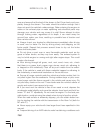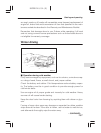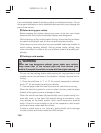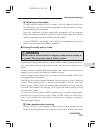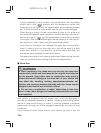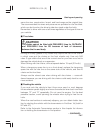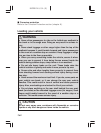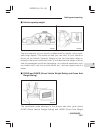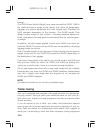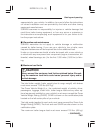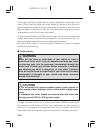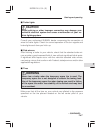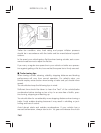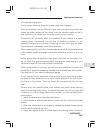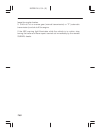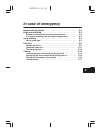
IMPREZA U.S.A. (E)
7-44
Rating).
The GVW (Gross Vehicle Weight) must never exceed the GVWR. GAW is
the combined total of weight of the vehicle, fuel, driver, all passengers,
luggage, any optional equipment and trailer tongue load. Therefore, the
GVW changes depending on the situation. The GVWR equals Curb
Weight (actual weight of your vehicle – including standard equipment,
fluids, emergency tools and spare tire assembly) plus the vehicle capac-
ity weight.
In addition, the total weight applied to each axle (GAW) must never ex-
ceed the GVWR. The front and rear GAWs can be adjusted by relocating
luggage inside the vehicle.
Even if the total weight of your luggage is lower than the vehicle capacity
weight, either front or rear GAW may exceed the GAWR, depending on
the distribution of the luggage.
If you carry heavy loads in the vehicle, you should confirm that GVW and
front and rear GAWs are within the GVWR and GAWR by putting your
vehicle on a vehicle scale, found at a commercial weighing station.
Do not use replacement tires with a lower load range than the originals
because they may lower the GVWR and GAWR limitations. Replacement
tires with a higher load range than the originals do not increase the
GVWR and GAWR limitations.
NOTE
For better fuel economy, do not carry unneeded cargo.
Trailer towing
Your car is designed and intended to be used primarily as a passenger-
carrying vehicle. Towing a trailer puts additional loads on your car’s en-
gine, drive train, brakes, tires and suspension and has an adverse effect
on fuel economy.
If you do decide to tow a trailer, your safety and satisfaction depend
upon proper use of correct equipment and cautious operation of your ve-
hicle. Seek the advice of a professional trailer and/or hitch supplier to
assist you in purchasing a hitch and other necessary towing equipment



